Production I.G. has always been a ground-breaker in the Japanese animation industry. Indeed, Production I.G. was the first company to film a series almost entirely in English with Japanese subtitles to reach a wider possible market, starting with the short feature Blood: The Last Vampire. With their latest feature, director Shinsuke Sato (Princess Blade) and animation director Naoyoshi Shiotani (Tokyo Marble Chocolate, in detail below) push the boundaries a little further by attempting the Production I.G’s first production with the 3DCG team in collaboration with Fuji Television Network.
Think of all those favourite things that you had as a child – teddy bears, books, a shell you found at the beach – and wonder where they are all now. This is the premise behind Oblivion Island: Haruka and the Magic Mirror (ホッタラケの島 遥と魔法の鏡 / ホッタラケの島 遥と魔法の鏡). When she is young, Haruka’s (voiced by Haruka Ayase, Ichi) mother dies, and Haruka promises to treasure a mirror gifted to her for as long as she lives. When she grows older, the mirror is forgotten until the day she spots a mysterious little creature running away with a toy plane. She soon finds herself on the magical Oblivion Island, a place made up entirely of lost things collected by the island’s inhabitants. Reunited with toys of old, she is determined to reclaim her mother’s mirror from the nefarious Baron, and maybe even save the day in the process.
Oblivion Island is an absolute delight. Somehow filling the familiar void between Toy Story, Alice in Wonderland/Spirited Away and The Wombles – or more accurately The Borrowers, also recently adapted by Studio Ghibli as The Borrower Arrietty – it also feels fresh and startlingly original. Taking that winning combination of high-concept adventure and ultra-Japanese cuteness (or ‘Kawaii!’), it is difficult to find fault with this wonderful tale. Rather than simply being led by the tale, Haruka is a feisty go-getter, immediately distinguishing her from Alice. The film is also deeply touching, not only in flashbacks to the past (in a wonderfully conceived sequence involving mirrors and “lost” memories), but through the reintroduction to her life of the childhood toy Cotton, a stuffed animal who may possibly be the cutest creation to every grace the screen. If Cotton doesn’t get his own spin-off film, and extensive line of merchandising, then there is no justice in the world.
The 3D CGI animation is not as slick as recent efforts from Disney or Dreamworks, however this is largely due to budgetary restrictions and a historical lack of local Japanese talent in the field of CG animation. Production I.G. has attempted to overcome this with over 200 dedicated staff and a fully equipped production environment, and the results are stunning. While it doesn’t have the finely rendered detail of the latest Pixar film, the animation is absolutely eye-popping in parts, although this is not consistent throughout. According to Oblivion Island‘s official press, it is “a fresh departure from 3DCG animation as we know it today. Oblivion Island: Haruka and the Magic Mirror will inherit the unique expressive style that has made Japanese animation hugely popular around the globe, and at the same time it will pursue a completely different texture from Western style 3DCG animation”. With a story this good it doesn’t matter what is on the screen. The fact that it still looks a treat is just gravy.
Winner of the Animation of the Year at the Japan Academy Prizes 2009 (and a swag of other awards at various festivals), Oblivion Island: Haruka and the Magic Mirror is destined to be a classic.
Tokyo Chocolate Marble
Also screening with Oblivion Island: Haruka and the Magic Mirror at the Festival was Naoyoshi Shiotani’s 2007 directorial debut Tokyo Marble Chocolate. In a cleverly constructed 50-minute piece (or more accurately, two 25-minute pieces) that dissects the relationship of a girl named Chizuru and a boy called Yudai, viewers are taken on an intimate and moving journey. Each piece looks at the anticipation before a major change – be it parting or literally falling in love (falling is a major theme in the films) – but done with a distinctive animation style that is a joy to behold. It may be the only film you ever see featuring a miniature donkey in a nappy.
Shiotani was on hand to answer questions from the audience about both films, and thanks to SMASH! there was a terrifc Anime Matsuri at this year’s Japanese Film Festival. It was going to be a tough call to find even more top-shelf anime after the terrific run of five films at the national Reel Anime festival this year, so well done for putting on a program that still managed to draw a huge crowd and some rabid cosplayers.
Oblivion Island: Haruka and the Magic Mirror and Tokyo Marble Chocolate are not currently available in Australia. Harass your local distributor to get these wonderful films released here.

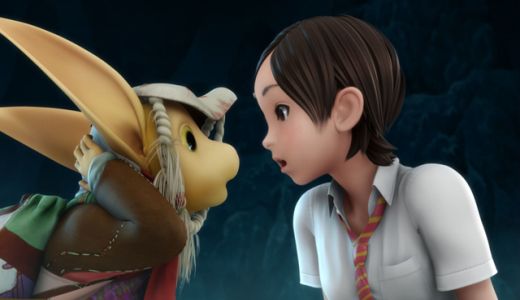
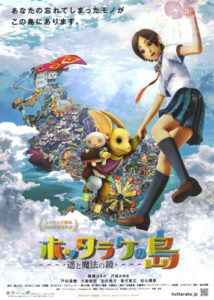
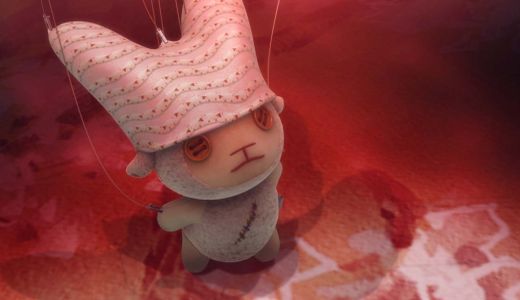
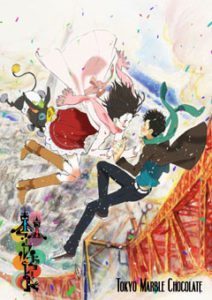


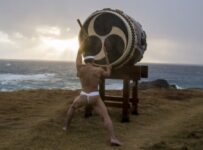
No Responses